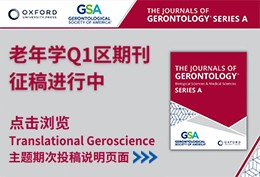-
Bishop Geisler and the 1934 ‘Torello-Ricci Affair’: fighting for moral authority in a Fascist borderland Modern Italy (IF 0.4) Pub Date : 2025-04-11 Eden K. McLean
In the autumn of 1934, Bishop Johannes Geisler of Brixen/Bressanone denied two Italian-speaking priests, Carlo Torello and Giuseppe Ricci, permission to teach within his predominantly German-speaking diocese. In response, Benito Mussolini threatened to expel all Church representatives from the state education system and, by extension, to unravel the recently signed Lateran Accords. Untangling the motivations
-
The Nuova Destra in Italy: an investigation between history and historiography Modern Italy (IF 0.4) Pub Date : 2025-03-24 David Bernardini
The aim of this article is to analyse the Italian Nuova Destra. The first part examines the birth of the Nuova Destra within the current of the Movimento Sociale Italiano (MSI), referring particularly to Pino Rauti, a founder and leader. Following the experience of the magazine La Voce della Fogna and the Hobbit Camps, the first publishing initiatives of the Nuova Destra – Diorama letterario and Elementi
-
The end of fascism? Modern Italy (IF 0.4) Pub Date : 2025-03-12 Rosario Forlenza
When did fascism end? Did it end in July 1943, with the fall of Mussolini from power, or in April 1945, with Liberation Day? The argument of this article is that fascism was not simply a historical experience but a political form that attempted to transcend Italy’s social and political fractures with fantasies and unrealistic but nevertheless captivating expectations. Its hypnotic contagious power
-
‘Beyond Paisans’: Italian-American service members and the Allied liberation of Italy Modern Italy (IF 0.4) Pub Date : 2025-02-25 Francesco Fusi
During the Second World War, hundreds of thousands of American soldiers of Italian origin were drafted into the US military and sent to fight overseas against the Axis powers. For many, this was an opportunity to demonstrate their loyalty to the country and remove suspicions raised by Italian communities’ ties with the Fascist regime. The prospect of fighting in their homeland aroused mixed feelings
-
‘Lots of red, but also lots of tricolour’: the liberation of Milan and the Liberal Party in the Minoletti–Quarello papers (April 1945) Modern Italy (IF 0.4) Pub Date : 2025-02-13 Rossella Pace
This article uses the hitherto partially unpublished diary of Virginia Minoletti Quarello and her husband Bruno Minoletti to shed a light on the Resistance and on the transformation of Italian politics after the war from an original angle. Virgina and Bruno, members of the Italian Liberal Party, played a central role in the Resistance and in consolidating the network of the Liberal partisans led by
-
The ‘swastika epidemic’ of 1960 and the first major public debate about antisemitism in republican Italy Modern Italy (IF 0.4) Pub Date : 2025-02-13 Enrico Palumbo
In December 1959, several episodes of antisemitism occurred in West Germany. These events spread rapidly to other countries and were dubbed by newspapers the ‘swastika epidemic’. In Italy, the episodes sparked intense debate among the main political forces of the time, framing the interpretation of antisemitic episodes within a context that considered the comparison between the two countries, while
-
‘Fascism on trial’: Rodolfo Graziani and the manipulation of historical consciousness in postwar Italy Modern Italy (IF 0.4) Pub Date : 2025-02-03 Victoria Witkowski
This article uses the postwar trial of Fascist Italy’s most prominent general, Rodolfo Graziani, to examine issues of transitional justice and the formation of popular memory of Italian Fascism and colonialism after 1945. During the Fascist ventennio, the regime constructed Graziani as the nation’s colonial ‘hero’ despite his leading role in genocidal measures during Fascist Italy’s colonial wars in
-
Italian vermouth on the international market (1890–1960): a success story Modern Italy (IF 0.4) Pub Date : 2025-01-23 Omar Mazzotti, Luciano Maffi, Stefano Magagnoli
This article examines the causes and geographical trajectories of the globalisation of vermouth, one of the most famous Made in Italy products in the world. Of all the fortified wines, vermouth stands out for its unique history. Originally a product of Piedmont consumed mainly by the aristocracy and the emerging bourgeoisie, vermouth became the subject of a growing export trade between the nineteenth
-
The Forgotten Resistance of the Sinti and Roma Modern Italy (IF 0.4) Pub Date : 2025-01-22 Chiara Nencioni
The role that Roma communities played in the Resistance during the Second World War is a little-known part of history, especially in Italy. Through consideration of their involvement, we can highlight the complexity of the Resistance, and recognise Roma communities as an integral part of Italian society. Roma involvement in the Resistance had distinctive characteristics compared to that of the gagi
-
Old woods, new rule: the annexation of Veneto to the Kingdom of Italy from a forest history perspective Modern Italy (IF 0.4) Pub Date : 2025-01-22 Giacomo Bonan
This paper analyses the period following the annexation of Veneto to the Kingdom of Italy in 1866 from the standpoint of forest history. Recent historiography has demonstrated that the development of scientific forestry was a crucial factor in the state-building process. Post-unification Veneto provides an opportunity to explore these dynamics from a decentralised perspective, focusing on two critical
-
The political drivers of antipoverty policy in Italy: persistence, change and reversals Modern Italy (IF 0.4) Pub Date : 2025-01-22 Rosa Mulè, Stefano Toso
This article analyses the political determinants of antipoverty policy in Italy between 1948 and 2022, providing a long-term analysis of the Italian minimum income scheme. We look for an explanation of that evolution drawing on three theoretical perspectives: veto players, gradual institutional change, and party competition. Our methodology is process tracing which involves the examination of ‘diagnostic’
-
Shaped by censoring attitudes: pornography in late nineteenth- and early twentieth-century Italy Modern Italy (IF 0.4) Pub Date : 2025-01-22 Claudio Monopoli
Through an analysis of the Italian context, this article illustrates how censoring attitudes shaped the modern meaning of pornography between the last two decades of the nineteenth century and the years of the Great War. The difference between the ideas of pornography and obscenity is pointed out through a concise examination of censorship archive documents from the Lombardo-Venetian Kingdom, the State
-
‘Brigantaggio’ revisited: historiographical experiences and prospects for research Modern Italy (IF 0.4) Pub Date : 2025-01-20 Carmine Pinto, Gian Luca Fruci
This article describes the results of the Progetto di ricerca di interesse nazionale (Research Project of National Interest [PRIN]) ‘Il brigantaggio rivisitato’ (‘“Brigantaggio” Revisited’), which investigated the practices and imagery of brigandage (and the fight against it) in modern and contemporary Italy from a Euro-Atlantic perspective. A large community of scholars, both within Italy and further
-
Migrations, citizenship and administrative borders: the Italian case Modern Italy (IF 0.4) Pub Date : 2025-01-20 Lucie Bargel, Carlo Caprioglio, Enrico Gargiulo, Daniela Trucco
This contribution summarises the scientific discussions that developed during a one-year cycle of international and interdisciplinary seminars focusing on the relationship between migration and citizenship in Italy. We considered human mobilities in their relation to the politico-administrative institutions of the state and observed the latter's attempt to define and govern them. The relative marginality
-
Public space at stake: competing forms of territorialisation and the construction of a democratic public space in the first years of the Italian Republic Modern Italy (IF 0.4) Pub Date : 2024-12-27 Virgile Cirefice
The end of the civil war, the fall of the Italian Social Republic, the allied occupation and the gradual transition to the new Italian Republic not only set Italy on the path to democracy, but also gradually gave Italians access to a new public space. This article proposes to revisit the classic question of the legacy of Fascism by looking at the question of space and the difficult construction of
-
Signposting the Meschita: Palermo's medieval Jewish quarter as a site of memory Modern Italy (IF 0.4) Pub Date : 2024-12-27 Sean Christian Wyer
Street signs in Italian, Hebrew and Arabic, installed in the twenty-first century, mark Palermo's former Jewish quarter, over half a millennium since Sicily last had a substantial Jewish population. They recall a medieval Jewish minority, but also symbolise what some consider to be Palermo's essentially pluralistic character. What motivates this inchoate revival of ‘Jewish space’, and what does it















 京公网安备 11010802027423号
京公网安备 11010802027423号